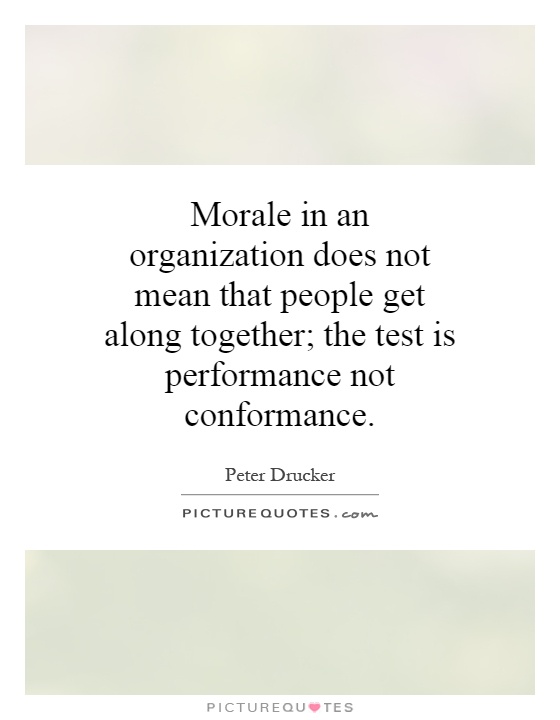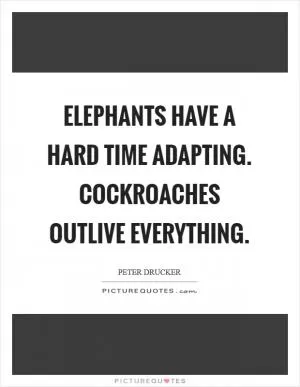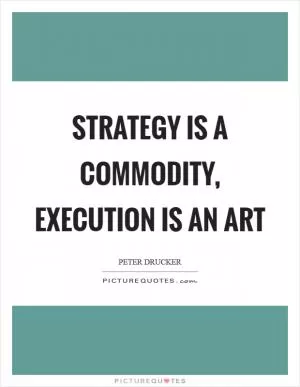Morale in an organization does not mean that people get along together; the test is performance not conformance

Morale in an organization does not mean that people get along together; the test is performance not conformance
Peter Drucker, often referred to as the father of modern management, believed that morale in an organization was not simply about people getting along with each other. He argued that the true test of morale was performance, not conformance. In other words, it didn't matter if employees were friendly and got along if they were not performing their jobs effectively.Drucker believed that a high level of morale was essential for organizational success. He understood that when employees were motivated and engaged, they were more likely to perform at their best. However, he also recognized that simply getting along with each other was not enough to drive performance. It was important for employees to be focused on achieving the organization's goals and delivering results.
Drucker's emphasis on performance over conformance was a revolutionary idea at the time. Many organizations placed a strong emphasis on conformity and obedience, believing that as long as employees followed the rules and got along with each other, the organization would be successful. Drucker challenged this notion, arguing that true success came from employees who were motivated, engaged, and focused on achieving results.
Drucker believed that a high level of morale could only be achieved when employees were given the opportunity to excel in their roles. This meant providing them with the necessary resources, support, and training to perform at their best. It also meant setting clear goals and expectations, and holding employees accountable for their performance.
In Drucker's view, a high level of morale was not about creating a happy, harmonious work environment. It was about creating a culture of high performance, where employees were motivated to achieve their best and contribute to the organization's success. He believed that when employees were focused on performance, rather than simply conforming to the status quo, the organization would thrive and succeed.












 Friendship Quotes
Friendship Quotes Love Quotes
Love Quotes Life Quotes
Life Quotes Funny Quotes
Funny Quotes Motivational Quotes
Motivational Quotes Inspirational Quotes
Inspirational Quotes